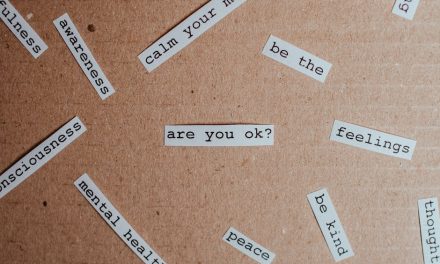Table of Contents
- Introduction
- How to Ask Open-Ended Questions
- The Importance of Active Listening
- Using Nonverbal Communication to Enhance Understanding
- Overcoming Barriers to Effective Communication
- The Role of Empathy in Communication
- Strategies for Conflict Resolution Through Communication
- Building Trust Through Transparent Communication
- The Impact of Tone and Language on Communication
- Cultivating a Culture of Effective Communication in the Workplace
- Q&A
- Conclusion
Unlock the power of communication with 9 powerful questions.
Introduction
Introduction:
Effective communication is essential in all aspects of life, whether it be in personal relationships, professional settings, or even casual interactions. Asking the right questions can help facilitate clear and meaningful communication. Here are 9 powerful questions that can help improve your communication skills and deepen your connections with others.
How to Ask Open-Ended Questions
Effective communication is a crucial skill in both personal and professional relationships. One way to improve communication is by asking open-ended questions. Open-ended questions encourage the other person to provide more detailed responses, leading to deeper conversations and better understanding. Here are nine powerful questions to help you enhance your communication skills.
1. “Can you tell me more about that?”
This question invites the other person to elaborate on their thoughts or feelings. It shows that you are genuinely interested in what they have to say and encourages them to share more information.
2. “How do you feel about this situation?”
Asking about someone’s feelings can help you understand their perspective better. It shows empathy and allows the other person to express their emotions openly.
3. “What do you think we should do next?”
This question encourages collaboration and problem-solving. It shows that you value the other person’s opinion and are willing to work together to find a solution.
4. “What was your experience like?”
Asking about someone’s past experiences can provide valuable insights into their thoughts and behaviors. It shows that you are interested in learning from their experiences and can help build rapport.
5. “What are your thoughts on this topic?”
This question allows the other person to share their opinions and ideas. It shows that you respect their perspective and are open to different viewpoints.
6. “How can I support you in this situation?”
Offering support shows that you care about the other person’s well-being. It can help strengthen your relationship and build trust.
7. “What are your goals for the future?”
Asking about someone’s goals can help you understand their motivations and aspirations. It shows that you are interested in their long-term success and can help you align your actions with their goals.
8. “What do you need from me right now?”
This question shows that you are willing to help and support the other person. It allows them to communicate their needs clearly and can lead to more effective problem-solving.
9. “What do you think is the best way to approach this situation?”
Asking for the other person’s input on how to handle a specific situation can lead to better outcomes. It shows that you value their expertise and are open to their suggestions.
In conclusion, asking open-ended questions is a powerful way to improve communication and build stronger relationships. By using these nine questions, you can enhance your ability to connect with others, understand their perspectives, and work together towards common goals. Practice asking open-ended questions regularly, and watch as your communication skills and relationships flourish.
The Importance of Active Listening
Effective communication is a crucial skill in both personal and professional relationships. One key aspect of effective communication is active listening. Active listening involves fully concentrating on what is being said, understanding the message, and responding thoughtfully. By actively listening, you can build stronger connections with others, improve your problem-solving skills, and enhance your overall communication effectiveness.
To become a better active listener, it is important to ask powerful questions that encourage deeper understanding and engagement. These questions can help you clarify information, uncover underlying emotions, and demonstrate empathy. Here are nine powerful questions that can enhance your communication skills:
1. Can you tell me more about that?
This open-ended question encourages the speaker to elaborate on their thoughts and feelings. By asking for more information, you show that you are interested in what they have to say and are willing to listen attentively.
2. How do you feel about this situation?
Asking about emotions can help you understand the speaker’s perspective on a deeper level. Emotions play a significant role in communication, and acknowledging them can lead to more meaningful conversations.
3. What do you need from me right now?
This question demonstrates your willingness to support the speaker and meet their needs. By asking how you can help, you show that you are committed to finding solutions and providing assistance.
4. Can you help me understand your point of view?
This question shows that you value the speaker’s perspective and are open to different viewpoints. By seeking to understand their point of view, you can build trust and mutual respect in the conversation.
5. What are your concerns about this issue?
By asking about concerns, you can address potential obstacles and work towards finding solutions. This question shows that you are attentive to the speaker’s worries and are willing to collaborate on resolving them.
6. How can we work together to overcome this challenge?
Collaboration is key to effective communication, and this question encourages teamwork and problem-solving. By asking how you can work together, you demonstrate your commitment to finding solutions and achieving common goals.
7. What would you like to see happen next?
This question helps clarify expectations and goals for the conversation. By asking about the next steps, you can ensure that both parties are on the same page and working towards a shared outcome.
8. How can I support you in achieving your goals?
Support is essential in effective communication, and this question shows that you are willing to help the speaker succeed. By offering your assistance, you can strengthen your relationship and build trust.
9. What can we learn from this experience?
Reflecting on past experiences can lead to valuable insights and growth. By asking what can be learned, you show that you are open to feedback and are committed to continuous improvement.
In conclusion, active listening is a powerful tool for effective communication. By asking powerful questions that encourage deeper understanding and engagement, you can enhance your communication skills and build stronger relationships. These nine questions can help you become a better active listener and improve your overall communication effectiveness. Practice asking these questions in your conversations, and watch as your communication skills and relationships flourish.
Using Nonverbal Communication to Enhance Understanding
Effective communication is essential in all aspects of life, whether it be in personal relationships, professional settings, or even casual interactions. While verbal communication is crucial, nonverbal communication also plays a significant role in conveying messages and enhancing understanding between individuals. By paying attention to nonverbal cues, we can better interpret the thoughts and feelings of others, leading to more effective communication overall.
One way to improve nonverbal communication is by asking powerful questions that encourage the other person to open up and share their thoughts and feelings. These questions can help to deepen the conversation and create a stronger connection between individuals. Here are nine powerful questions that can enhance understanding through nonverbal communication:
1. “How are you feeling right now?” This question allows the other person to express their emotions, which can often be conveyed through nonverbal cues such as facial expressions, body language, and tone of voice. By asking this question, you show that you are attentive to their feelings and are interested in understanding their emotional state.
2. “What do you need from me in this moment?” By asking this question, you are showing that you are willing to support the other person and meet their needs. This can help to create a sense of trust and openness in the conversation, leading to better communication and understanding.
3. “Can you tell me more about that?” This question encourages the other person to elaborate on their thoughts and feelings, allowing for a deeper exploration of the topic at hand. By asking for more information, you demonstrate that you are actively listening and are interested in gaining a better understanding of their perspective.
4. “How can I help you feel more comfortable?” This question shows that you are attentive to the other person’s comfort level and are willing to make adjustments to ensure they feel at ease. By creating a comfortable environment, you can encourage open and honest communication, leading to a more productive conversation.
5. “What are your thoughts on this matter?” By asking for the other person’s thoughts, you are inviting them to share their perspective and contribute to the conversation. This can help to foster a sense of collaboration and mutual understanding, leading to more effective communication overall.
6. “What do you think is the best way to move forward?” This question encourages the other person to take an active role in problem-solving and decision-making. By involving them in the process, you can create a sense of ownership and empowerment, leading to more effective communication and outcomes.
7. “How can we work together to achieve our goals?” This question promotes teamwork and collaboration, encouraging both parties to work towards a common objective. By fostering a sense of unity and shared purpose, you can enhance understanding and communication between individuals.
8. “What do you need from me to feel heard and understood?” This question shows that you are committed to listening and understanding the other person’s perspective. By asking for feedback on how you can improve your communication, you can strengthen your relationship and create a more supportive and empathetic environment.
9. “Is there anything else you would like to share?” This open-ended question allows the other person to express any additional thoughts or feelings they may have. By giving them the opportunity to share freely, you can deepen the conversation and create a more meaningful connection.
In conclusion, asking powerful questions can enhance understanding through nonverbal communication by encouraging open and honest dialogue, fostering collaboration and teamwork, and creating a supportive and empathetic environment. By incorporating these questions into your conversations, you can improve your communication skills and build stronger relationships with others.
Overcoming Barriers to Effective Communication

Effective communication is essential in all aspects of life, whether it be in personal relationships, professional settings, or even within oneself. However, many people struggle with communication due to various barriers that hinder their ability to convey their thoughts and feelings effectively. One way to overcome these barriers is by asking powerful questions that can help facilitate meaningful conversations and improve communication skills.
One powerful question that can enhance communication is “Can you tell me more about that?” This question encourages the speaker to elaborate on their thoughts and feelings, providing a deeper understanding of their perspective. By actively listening and asking for more information, you show that you are genuinely interested in what the other person has to say, which can strengthen the connection between both parties.
Another powerful question is “How do you feel about that?” This question focuses on the emotional aspect of communication, allowing the speaker to express their feelings and emotions openly. By acknowledging and validating their emotions, you create a safe space for honest and authentic communication to take place.
A third powerful question is “What do you need from me?” This question demonstrates your willingness to support and assist the other person, showing that you are committed to finding a solution or resolution to any issues that may arise. By offering your help and support, you can build trust and strengthen the relationship between both parties.
A fourth powerful question is “What are your thoughts on this matter?” This question encourages the speaker to share their opinions and perspectives, fostering a sense of collaboration and mutual respect. By valuing their input and ideas, you create a more inclusive and open communication environment where everyone’s voice is heard and respected.
A fifth powerful question is “What can we do to resolve this issue?” This question focuses on finding practical solutions to any problems or conflicts that may arise during communication. By working together to find a resolution, you demonstrate your commitment to overcoming obstacles and improving communication in a constructive and positive way.
A sixth powerful question is “How can I support you in this situation?” This question shows your willingness to be a supportive and empathetic listener, offering your assistance and guidance when needed. By being there for the other person and providing emotional support, you can strengthen the bond between both parties and create a more trusting and understanding relationship.
A seventh powerful question is “What do you think is the best course of action?” This question empowers the speaker to take ownership of their decisions and actions, encouraging them to think critically and make informed choices. By valuing their judgment and decision-making skills, you can foster a sense of independence and self-confidence in the other person, leading to more effective communication and problem-solving.
An eighth powerful question is “How can we prevent this from happening in the future?” This question focuses on learning from past experiences and mistakes, allowing both parties to reflect on what went wrong and how to avoid similar issues in the future. By discussing ways to improve communication and prevent misunderstandings, you can create a more proactive and solution-oriented approach to resolving conflicts and building stronger relationships.
A ninth powerful question is “What are your expectations in this situation?” This question helps clarify any misunderstandings or miscommunications that may arise during conversations, ensuring that both parties are on the same page and have a clear understanding of each other’s needs and expectations. By setting clear expectations and boundaries, you can prevent conflicts and misunderstandings from occurring, leading to more effective and harmonious communication.
In conclusion, asking powerful questions can help overcome barriers to effective communication and improve relationships in all areas of life. By actively listening, showing empathy, and fostering open and honest conversations, you can create a more positive and supportive communication environment where everyone feels heard and valued. So next time you find yourself struggling to communicate effectively, try asking one of these powerful questions to facilitate meaningful and productive conversations.
The Role of Empathy in Communication
Effective communication is a crucial skill in both personal and professional relationships. It involves not only speaking clearly and articulately but also listening actively and empathetically. Empathy, in particular, plays a significant role in communication as it allows individuals to understand and connect with others on a deeper level.
Empathy is the ability to understand and share the feelings of another person. It involves putting yourself in someone else’s shoes and seeing the world from their perspective. When communicating with others, empathy can help you build trust, foster understanding, and strengthen relationships.
One way to demonstrate empathy in communication is by asking powerful questions. These are open-ended questions that encourage the other person to share their thoughts, feelings, and experiences. By asking these questions, you show that you are genuinely interested in what the other person has to say and that you are willing to listen and understand.
Here are nine powerful questions that can help you demonstrate empathy in your communication:
1. Can you tell me more about that?
This question shows that you are interested in hearing more about the other person’s thoughts or experiences. It encourages them to open up and share more details, allowing you to gain a deeper understanding of their perspective.
2. How are you feeling about this situation?
By asking this question, you show that you care about the other person’s emotions and well-being. It allows them to express their feelings and helps you empathize with their experience.
3. What do you need from me right now?
This question demonstrates your willingness to support the other person and meet their needs. It shows that you are attentive to their concerns and are willing to help in any way you can.
4. How can I best support you in this situation?
By asking this question, you show that you are committed to helping the other person navigate through their challenges. It allows them to communicate their needs and preferences, enabling you to provide the support they require.
5. What would make this situation better for you?
This question encourages the other person to think about potential solutions or ways to improve their current situation. It shows that you are invested in finding a positive outcome and are willing to work together to achieve it.
6. How can we work together to resolve this issue?
By using inclusive language in this question, you show that you are willing to collaborate and find a solution together. It fosters a sense of teamwork and partnership, leading to more effective problem-solving.
7. What do you think is the best course of action moving forward?
This question empowers the other person to take ownership of their decisions and actions. It shows that you value their input and trust their judgment, leading to a more collaborative and respectful conversation.
8. How can I better understand your perspective?
By asking this question, you show that you are open to learning and growing from the other person’s point of view. It demonstrates your willingness to listen and empathize, even if you may not fully agree with their perspective.
9. What can I do to make you feel heard and valued?
This question shows that you are committed to creating a safe and supportive environment for the other person to express themselves. It demonstrates your respect for their opinions and feelings, fostering a sense of trust and mutual understanding.
In conclusion, empathy plays a crucial role in effective communication. By asking powerful questions that demonstrate empathy, you can build stronger relationships, foster understanding, and create a more positive and supportive communication environment. By actively listening, showing empathy, and asking thoughtful questions, you can enhance your communication skills and connect with others on a deeper level.
Strategies for Conflict Resolution Through Communication
Effective communication is essential for resolving conflicts and maintaining healthy relationships. One way to improve communication skills is by asking powerful questions that can help facilitate understanding and promote open dialogue. By asking the right questions, you can gain insight into the thoughts and feelings of others, clarify misunderstandings, and find common ground. Here are nine powerful questions that can help you navigate difficult conversations and improve your communication skills.
1. Can you help me understand your perspective?
This question shows that you are willing to listen and empathize with the other person’s point of view. By asking for clarification and seeking to understand their perspective, you can create a more open and respectful dialogue.
2. What are your concerns or fears about this situation?
By asking this question, you can uncover underlying emotions and fears that may be driving the conflict. Understanding the other person’s concerns can help you address them more effectively and find solutions that meet both of your needs.
3. How can we work together to find a solution?
This question shifts the focus from blame and conflict to collaboration and problem-solving. By asking for the other person’s input and involving them in the process of finding a solution, you can build trust and create a sense of shared responsibility.
4. What do you need from me to feel heard and understood?
This question demonstrates your commitment to listening and validating the other person’s feelings. By asking how you can better support them in feeling heard and understood, you can create a more supportive and empathetic communication environment.
5. What can I do differently to improve our communication?
This question invites feedback and self-reflection, allowing you to identify areas for improvement in your own communication style. By being open to feedback and willing to make changes, you can create a more positive and effective communication dynamic.
6. What are your goals or intentions in this situation?
By asking about the other person’s goals and intentions, you can gain insight into their motivations and priorities. Understanding what they hope to achieve can help you find common ground and work towards mutually beneficial outcomes.
7. How can we prevent this conflict from happening again in the future?
This question focuses on finding long-term solutions and preventing future conflicts. By discussing strategies for conflict prevention and resolution, you can create a more proactive and constructive approach to communication.
8. What values or principles are important to you in this situation?
By exploring the other person’s values and principles, you can better understand their perspective and motivations. Understanding what is important to them can help you find ways to align your values and work towards a more harmonious relationship.
9. How can we move forward and rebuild trust?
This question acknowledges the impact of the conflict on the relationship and focuses on repairing and rebuilding trust. By discussing ways to move forward and restore trust, you can create a more positive and resilient communication dynamic.
In conclusion, asking powerful questions can help improve communication, resolve conflicts, and build stronger relationships. By being curious, empathetic, and open to feedback, you can create a more supportive and effective communication environment. Next time you find yourself in a difficult conversation, try using these powerful questions to navigate the conflict and find common ground.
Building Trust Through Transparent Communication
Effective communication is essential in building trust and fostering strong relationships, both personally and professionally. Transparent communication is key to establishing trust and creating a positive environment where individuals feel heard and understood. Asking powerful questions is a valuable tool in enhancing communication and deepening connections with others.
One powerful question that can enhance communication is, “Can you tell me more about that?” This question shows genuine interest in the other person’s thoughts and feelings, encouraging them to open up and share more information. By actively listening and asking for more details, you demonstrate that you value their perspective and are willing to engage in a meaningful conversation.
Another powerful question to consider is, “How can I support you?” This question shows empathy and a willingness to help others in their time of need. By offering support and assistance, you build trust and strengthen your relationship with the other person. It also shows that you are committed to their well-being and success.
A third powerful question to ask is, “What are your thoughts on this?” This question invites the other person to share their opinions and ideas, fostering a sense of collaboration and mutual respect. By seeking input and feedback, you demonstrate that you value their perspective and are open to different viewpoints.
One important question to consider is, “What do you need from me?” This question shows that you are willing to listen and respond to the other person’s needs and concerns. By asking how you can help, you demonstrate your commitment to their well-being and success. It also shows that you are willing to take action to support them in achieving their goals.
Another powerful question to ask is, “What are your expectations?” This question helps clarify expectations and avoid misunderstandings. By discussing expectations openly and honestly, you can ensure that both parties are on the same page and working towards a common goal. It also shows that you are committed to clear and effective communication.
A sixth powerful question to consider is, “What can we do differently next time?” This question encourages reflection and continuous improvement. By seeking feedback and suggestions for improvement, you demonstrate a growth mindset and a willingness to learn from past experiences. It also shows that you are open to change and committed to finding better solutions in the future.
One important question to ask is, “How are you feeling about this?” This question shows empathy and a willingness to understand the other person’s emotions. By acknowledging their feelings and emotions, you demonstrate that you care about their well-being and are willing to support them through difficult times. It also shows that you are committed to building a strong emotional connection with the other person.
Another powerful question to consider is, “What is your perspective on this situation?” This question invites the other person to share their viewpoint and helps you see things from their perspective. By seeking to understand their point of view, you demonstrate empathy and a willingness to listen. It also shows that you value their opinion and are open to different perspectives.
In conclusion, asking powerful questions is a valuable tool in enhancing communication and building trust with others. By showing genuine interest, empathy, and a willingness to listen, you can deepen your connections and create a positive and supportive environment. By asking these nine powerful questions, you can improve your communication skills and strengthen your relationships with others.
The Impact of Tone and Language on Communication
Effective communication is essential in all aspects of life, whether it be in personal relationships, professional settings, or even casual conversations. The way we communicate can greatly impact the outcome of our interactions, and one of the key factors that influence communication is tone and language. The tone and language we use can convey our emotions, intentions, and attitudes, and can either facilitate or hinder effective communication.
Research has shown that the tone of voice accounts for 38% of the overall impact of a message, while words themselves only account for 7%. This highlights the importance of paying attention to how we say things, rather than just what we say. The tone of voice can convey emotions such as anger, frustration, excitement, or empathy, and can greatly influence how a message is received by the listener.
In addition to tone, the language we use also plays a crucial role in communication. The words we choose can convey our level of respect, understanding, and empathy towards the other person. Using clear, concise, and respectful language can help to ensure that our message is understood and received positively.
When it comes to effective communication, asking the right questions can also make a significant difference. By asking thoughtful and powerful questions, we can encourage open and honest dialogue, gain a deeper understanding of the other person’s perspective, and foster stronger connections. Here are 9 powerful questions that can help improve communication:
1. Can you help me understand your perspective on this?
2. How are you feeling about this situation?
3. What do you need from me to support you?
4. What are your thoughts on how we can resolve this issue?
5. How can we work together to find a solution?
6. What are your concerns about this decision?
7. What do you think is the best way to move forward?
8. How can I better support you in the future?
9. What can we learn from this experience to improve our communication?
By asking these questions, we can show that we are genuinely interested in the other person’s thoughts and feelings, and are willing to listen and collaborate to find a resolution. This can help to build trust, strengthen relationships, and improve overall communication.
In addition to asking powerful questions, it is also important to be mindful of our tone and language when communicating. Using a calm and respectful tone of voice, and choosing words that are clear, empathetic, and non-judgmental can help to create a positive and supportive environment for communication.
In conclusion, the impact of tone and language on communication cannot be understated. By paying attention to how we say things, asking powerful questions, and using clear and respectful language, we can improve our communication skills, build stronger relationships, and achieve better outcomes in all areas of our lives. Effective communication is a skill that can be developed and honed over time, and by being mindful of our tone and language, we can become more effective communicators and better connect with others.
Cultivating a Culture of Effective Communication in the Workplace
Effective communication is the cornerstone of any successful workplace. It is essential for fostering collaboration, building strong relationships, and ensuring that everyone is on the same page. However, communication is not always easy, and many people struggle to effectively convey their thoughts and ideas. One way to improve communication in the workplace is by asking powerful questions that encourage open and honest dialogue. By asking the right questions, you can gain a deeper understanding of your colleagues’ perspectives, uncover hidden issues, and facilitate more meaningful conversations. Here are nine powerful questions that can help you cultivate a culture of effective communication in your workplace.
1. Can you tell me more about that?
This simple question can help you gain a better understanding of your colleague’s perspective. By encouraging them to elaborate on their thoughts and ideas, you can uncover valuable insights and create a more meaningful dialogue. This question also shows that you are genuinely interested in what they have to say, which can help build trust and rapport.
2. What are your thoughts on this?
By asking for your colleague’s opinion, you are showing that you value their input and respect their expertise. This question can help you gain new insights, challenge your own assumptions, and foster a more collaborative environment. It also encourages your colleague to think critically about the issue at hand and articulate their thoughts more clearly.
3. How do you think we should approach this problem?
This question can help you involve your colleague in the decision-making process and empower them to take ownership of the problem. By asking for their input on how to solve the issue, you are demonstrating that you trust their judgment and value their expertise. This can lead to more creative solutions and a greater sense of ownership and accountability among team members.
4. What do you need from me to be successful?
This question shows that you are committed to supporting your colleague and helping them succeed. By asking how you can best support them, you are opening the door for them to communicate their needs and preferences. This can help you tailor your approach to better meet their needs and create a more positive and productive working relationship.
5. What obstacles do you foresee in implementing this plan?
By asking about potential obstacles, you can anticipate challenges and develop strategies to overcome them. This question can help you identify potential roadblocks early on and create a more realistic and effective plan. It also shows that you are proactive and forward-thinking, which can inspire confidence and trust among your colleagues.
6. How can we improve our communication in the future?
This question encourages reflection and self-assessment, which can help you identify areas for improvement and develop strategies for better communication. By asking for feedback on your communication style, you are demonstrating a willingness to learn and grow. This can help you build stronger relationships, resolve conflicts more effectively, and create a more positive and collaborative work environment.
7. What impact do you think this decision will have on our team?
By asking about the potential impact of a decision, you can gain a better understanding of how it will affect your colleagues and the team as a whole. This question encourages your colleagues to think about the bigger picture and consider the implications of their actions. It can also help you make more informed decisions and create a more inclusive and transparent decision-making process.
8. How are you feeling about this project?
This question shows that you care about your colleague’s well-being and are interested in their emotional state. By asking about their feelings, you can create a more supportive and empathetic work environment. This can help you build stronger relationships, boost morale, and improve overall team performance.
9. What can we learn from this experience?
By asking for lessons learned, you can turn setbacks into opportunities for growth and improvement. This question encourages reflection and self-assessment, which can help you identify areas for improvement and develop strategies for better communication. It also shows that you are committed to continuous learning and development, which can inspire your colleagues to do the same.
In conclusion, asking powerful questions is a simple yet effective way to improve communication in the workplace. By asking thoughtful and insightful questions, you can gain a deeper understanding of your colleagues’ perspectives, uncover hidden issues, and facilitate more meaningful conversations. These nine powerful questions can help you cultivate a culture of effective communication in your workplace and build stronger relationships with your colleagues. By fostering open and honest dialogue, you can create a more positive and productive work environment where everyone feels heard, valued, and respected.
Q&A
1. What is the purpose of asking powerful questions in communication?
To encourage deeper thinking and understanding.
2. How can powerful questions help improve communication skills?
By promoting active listening and fostering meaningful dialogue.
3. What are some examples of powerful questions?
“What do you think is the best solution to this problem?” or “How do you feel about the situation?”
4. How can powerful questions help in resolving conflicts?
By encouraging empathy and understanding different perspectives.
5. How can powerful questions be used in a professional setting?
To facilitate problem-solving, decision-making, and team collaboration.
6. What are the key characteristics of a powerful question?
Open-ended, thought-provoking, and focused on the other person’s perspective.
7. How can powerful questions help build rapport and trust in relationships?
By showing genuine interest in the other person’s thoughts and feelings.
8. How can one practice asking powerful questions in everyday conversations?
By actively listening, being curious, and reframing questions to encourage deeper reflection.
9. What are some potential challenges in using powerful questions in communication?
Misinterpretation, resistance, or difficulty in formulating effective questions.
Conclusion
Effective communication is essential in all aspects of life, whether it be in personal relationships, professional settings, or everyday interactions. By asking powerful questions, individuals can deepen their understanding, foster meaningful connections, and ultimately improve their communication skills. These nine powerful questions serve as valuable tools for enhancing communication and building stronger relationships.





